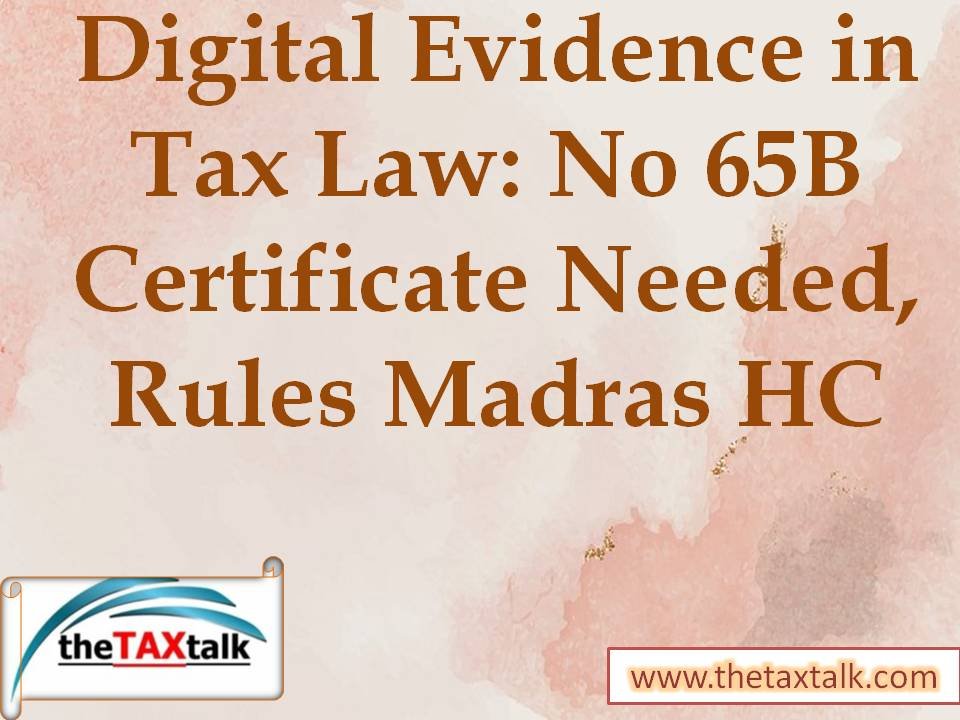![]()
Digital Evidence in Tax Law: No 65B Certificate Needed, Rules Madras HC
In a landmark judgment (TS-487-HC-2025(MAD) – Vetrivel Minerals & Others), the Madras High Court has decisively held that Section 65B of the Indian Evidence Act, 1872 does not apply to assessment proceedings under the Income Tax Act, 1961.
The controversy centered around whether electronic records (such as emails, digital ledgers, and backups) could be admitted and relied upon by tax authorities without a Section 65B certificate, which is otherwise a statutory requirement in judicial proceedings involving electronic evidence.
Legal Issue Raised
The assessees argued that the absence of a 65B certificate rendered the electronic evidence inadmissible. They relied heavily on the Digital Evidence Investigation Manual (CBDT, 2014), which directs tax officials to follow Section 65B when handling electronic records.
However, the High Court refused to apply Section 65B to assessment proceedings, stating that:
1 Section 65B Certificate Not Mandatory for Income Tax Use
The court ruled that assessment proceedings are not governed by the Evidence Act, and hence, electronic records can be admitted even without a 65B certificate.
2 Manual = Law
Even if departmental manuals (like the Digital Evidence Manual) recommend compliance with Section 65B, such instructions cannot override the law or Supreme Court rulings which exempt quasi-judicial authorities from strict evidentiary rules.
3 Admissibility = Genuineness
However, the court clarified that assessees can still challenge the authenticity or reliability of electronic records, but not on the technical ground of absence of certification.
Final Thought:
Gone are the days when technicalities could triumph over truth. As courts embrace the spirit of substantive justice, procedural rigidity-like demanding certificates meant for courts-will no longer invalidate assessment proceedings. It seems Courts are broadly taking a view that in the age of digital evidence, what matters is credibility, not certification.
The Madras High Court’s reasoning is aligned with established tax jurisprudence. However, in an era where electronic evidence is often central and complex, a complete exemption from foundational safeguards like 65B certification could lead to a dilution of evidentiary fairness.
Perhaps the way forward lies not in blindly applying or ignoring Section 65B, but in developing tax-specific evidentiary standards-balancing flexibility with procedural integrity.
The copy of the order is as under:


